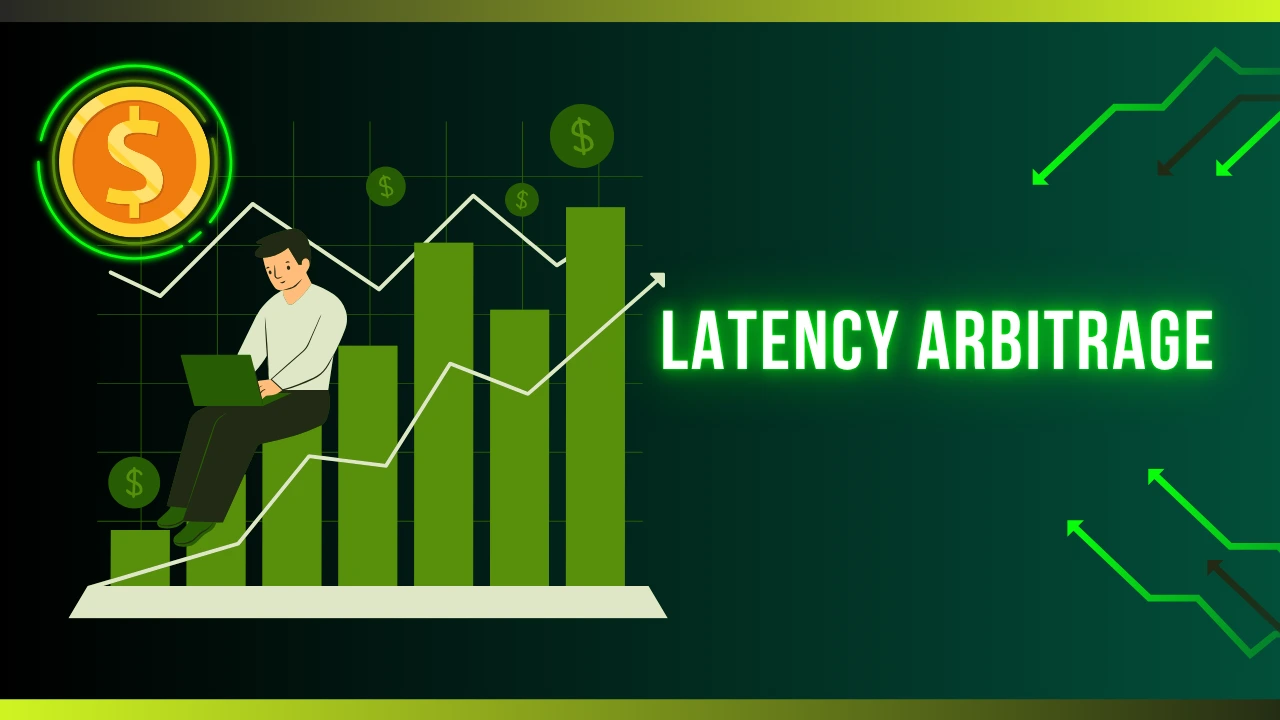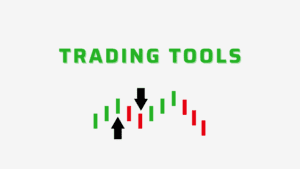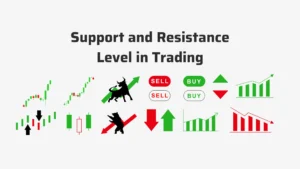What Is Latency Arbitrage?
Latency arbitrage is a high-frequency trading (HFT) strategy where traders exploit tiny delays in price updates between different brokers or liquidity providers. By using ultra-fast connections and algorithms, traders capitalize on milliseconds-long discrepancies to lock in risk-free profits. This practice is controversial because it often harms brokers, especially those using a B-book model, where they take the opposite side of client trades.
How Does Latency Arbitrage Work?
- Price Feed Differences – Brokers get prices from multiple liquidity providers, and slight delays can create temporary mispricings.
- Low-Latency Execution – Traders use co-location services (placing servers near exchanges) and forex arbitrage software to detect and act on these gaps instantly.
- Exploiting the Spread – The trader buys at a stale (old) price and sells at the updated one, pocketing the difference before the broker adjusts.
Since this happens in milliseconds, only algorithmic trading systems can effectively execute it.
Why Do Brokers Hate Latency Arbitrage?
Most brokers classify latency arbitrage as toxic flow—a type of trading that consistently loses them money. Here’s why they take action against it:
- B-Book Brokers Lose Directly – If a broker internalizes trades (doesn’t pass them to the market), they suffer losses when arbitrageurs exploit pricing lags.
- A-Book Brokers Face Liquidity Issues – Even brokers hedging trades may get worse pricing from liquidity providers due to arbitrage-driven inefficiencies.
- Risk of Market Manipulation – Some argue that latency arbitrage distorts fair pricing, leading to regulatory scrutiny.
As a result, brokers use anti-arbitrage mechanisms, such as:
- Order execution delays (artificial latency)
- Requiring minimum trade durations
- Banning accounts suspected of arbitrage
Is Latency Arbitrage Legal?
The legality of latency arbitrage is a gray area. While not explicitly illegal, many brokers prohibit it in their terms. Regulatory bodies like the FCA (UK) and CFTC (US) monitor HFT practices but haven’t outright banned latency arbitrage. However, brokers can still restrict or close accounts engaging in it.
Can Retail Traders Use Latency Arbitrage?
Most retail traders can’t compete with institutional-grade low-latency trading setups. The costs for co-location, high-speed FIX API connections, and forex arbitrage software are prohibitive. Additionally, brokers quickly detect and block such strategies.
Alternatives to Latency Arbitrage
If you’re looking for similar high-speed strategies, consider:
- Scalping in Forex – Quick, short-term trades without exploiting broker latency.
- Statistical Arbitrage – Using mathematical models rather than speed-based gaps.
- News Trading – Capitalizing on volatility after major economic releases.
Best Forex Brokers for Low-Latency Trading
If you want fast execution without arbitrage bans, look for:
- ECN/STP Brokers – They route orders directly to liquidity providers.
- Brokers with FIX API – Ensures the fastest possible execution.
- Low-Slippage Guarantees – Helps avoid price discrepancies.
Final Thoughts: Should You Try Latency Arbitrage?
While latency arbitrage can be profitable, most brokers have countermeasures in place. Unless you have institutional-level resources, it’s a high-risk approach. Instead, focus on permitted forex trading strategies that brokers allow, such as swing trading or algorithmic trend-following systems.
Key Takeaways
Latency arbitrage exploits tiny delays in broker price feeds.
Brokers ban it because it’s toxic flow that harms their profitability.
Retail traders struggle to compete due to high infrastructure costs.
Alternatives like scalping and news trading are safer options.
By understanding how latency arbitrage works, you can make smarter decisions in forex trading—whether you’re a trader or a broker managing risk.
Latency Arbitrage in Forex Trading
Your complete guide to understanding how high-frequency traders exploit price delays and why brokers ban this practice
What is latency arbitrage in forex trading?
Latency arbitrage is a high-frequency trading (HFT) strategy where traders exploit tiny delays in price updates between brokers or liquidity providers. Using ultra-fast connections and algorithmic trading, they profit from milliseconds-long price discrepancies before the market adjusts.
Is latency arbitrage legal?
While not explicitly illegal, most forex brokers ban it in their terms. Regulatory bodies like the FCA and CFTC monitor HFT practices, but brokers can freeze accounts engaging in latency arbitrage due to its toxic flow risks.
Why do brokers ban latency arbitrage?
Brokers classify it as toxic flow because:
- B-book brokers lose money when traders exploit pricing lags.
- A-book brokers face worse liquidity pricing from providers.
- It can distort fair market pricing, leading to regulatory scrutiny.
Can retail traders profit from latency arbitrage?
Most retail traders lack the infrastructure (like co-location services, FIX API, or forex arbitrage software) to compete with institutional HFT firms. Brokers also detect and block such strategies quickly.
How do brokers detect latency arbitrage?
Brokers use:
- Anti-arbitrage algorithms
- Order execution delays (artificial latency)
- Minimum trade duration rules
- Volume pattern analysis
What’s the difference between A-book and B-book brokers?
- A-book brokers route trades directly to liquidity providers.
- B-book brokers internalize trades, making them vulnerable to arbitrage losses.
What are alternatives to latency arbitrage?
Safer strategies include:
- Scalping in forex (quick, short-term trades)
- Statistical arbitrage (math-based models)
- News trading (volatility plays)
How does co-location reduce latency?
Co-location services place trading servers physically near exchange data centers, cutting transmission delays. This is critical for low-latency trading but expensive for retail traders.
What’s the “Flash Boys” controversy?
Michael Lewis’s book Flash Boys exposed how HFT firms use latency arbitrage to front-run orders, sparking debates on market manipulation and fairness.
Which forex brokers allow arbitrage strategies?
Most brokers prohibit arbitrage, but ECN/STP brokers with FIX API connectivity offer faster execution for low-latency trading without outright bans.









